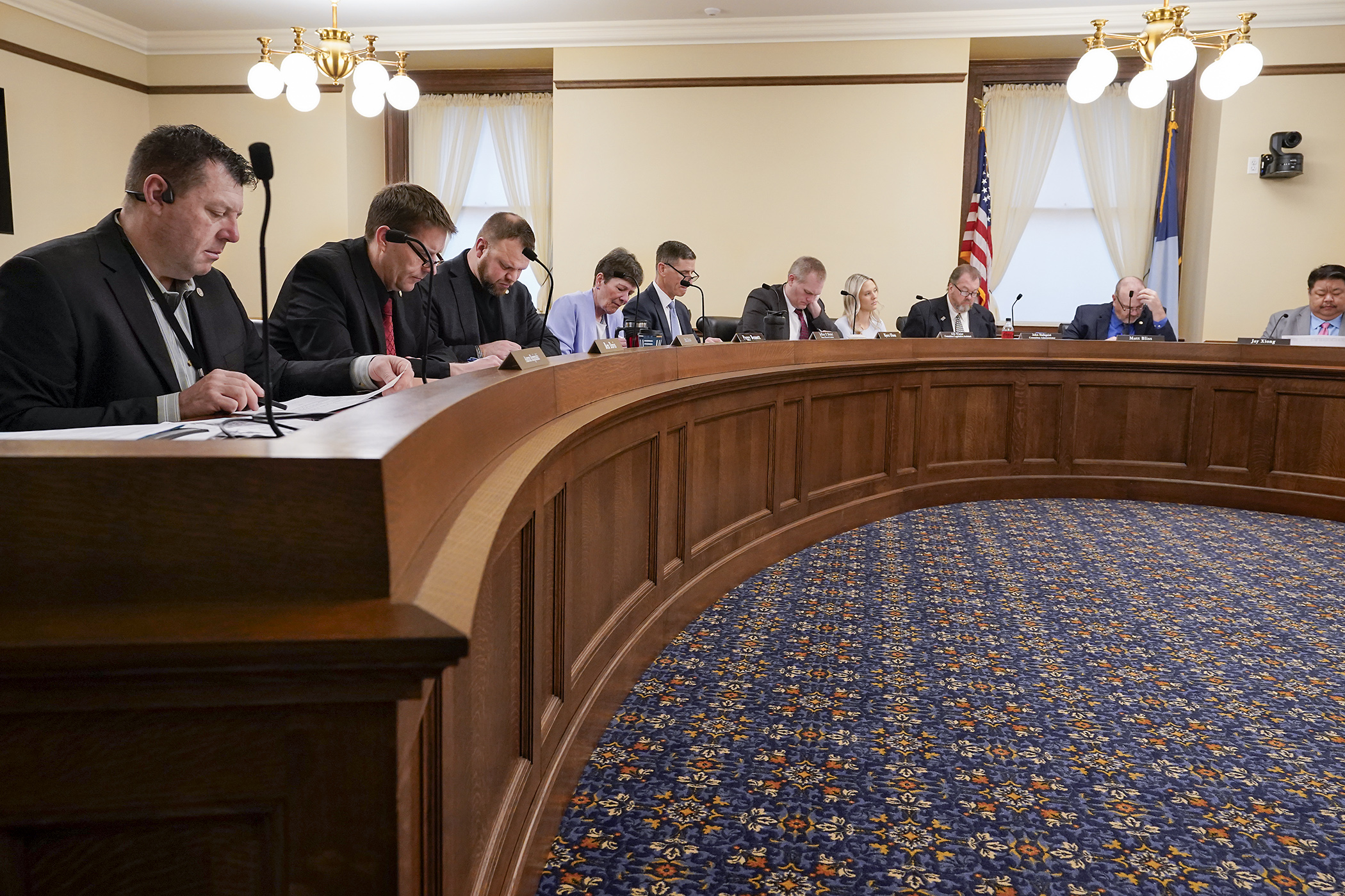Omnibus veterans, military affairs bill proposes small spending increase

With a minimal biennial budget target increase, potential spending bumps for the Military Affairs and Veterans Affairs departments are few.
And there are a couple of cuts.
As amended with a delete-all amendment, and a pair of technical changes, HF2444 is the omnibus veterans and military affairs finance and policy bill that calls for 2026-27 biennial spending of $319.72 million, $5 million over current base, and aligns with budget targets set by House leaders.
Gov. Tim Walz calls for a $50.5 million increase in his proposed budget.
Sponsored by Rep. Matt Bliss (R-Pennington), who co-chairs the House Veterans and Military Affairs Division with Rep. Jay Xiong (DFL-St. Paul), the bill received division approval Wednesday and was sent to the House Ways and Means Committee.
[MORE: View financial agreement detail, change items]
The Department of Veterans Affairs would get an additional net $4.38 million that includes some current funding being rearranged; the Department of Military Affairs would receive a $599,000 operating adjustment.
For the former, the bill calls for an $11.64 million operating adjustment increase for veterans homes; $2.2 million for an increase in suicide prevention programming; $500,000 to increase Metro Meals on Wheels funding for veterans who don’t qualify for other forms of financial assistance; $500,000 for the Lutheran Social Services CORE program to provide home-delivered meals to veterans in Minnesota outside of Hennepin and Ramsey counties and technical, enrollment, outreach, and volunteer recruitment assistance to member programs; and $120,000 for technical assistance to veterans service officers around women veterans, suicide prevention, and justice-involved veterans.
Among its policy provisions, the bill would grant veteran status under state law to certain people who served alongside American forces in Vietnam: naturalized under the federal Hmong Veterans’ Naturalization Act of 2000 or have served honorably with a special guerrilla unit or other irregular forces from a base in Laos in support of the United States and are now a U.S. citizen or permanent resident. An advisory task force would be created — and funded with $118,000 — to develop criteria to determine a person’s eligibility.
But the bill also comes with a couple proposed Department of Veterans Affairs cuts: $10 million for programs to reduce veteran homelessness and $700,000 by eliminating two direct grants in its base funding.
“Pulling funding from these initiatives is not just cutting a budget line. It denies veterans the opportunity to find stability and live with dignity,” Neal Loidolt, president and CEO of Minnesota Assistance Council for Veterans said regarding the homelessness change.
“We decided this year that we would like to see veterans suicide take a higher priority than it is currently getting,” Bliss said. “… Homelessness is very important, and we didn’t cut it to zero, but we do want to focus on improving that suicide number.”
Among other policy provisions, the bill would:
- increase the maximum bonded indebtedness allowed for the State Armory Building Commission from $15 million to $45 million;
- add 5% of servicemember base pay as a pension offset for those activated for state active duty;
- require placement of a memorial plaque in the Court of Honor to recognize the service and sacrifices of Minnesota’s Gold Star and Blue Star families;
- align state law with federal laws governing eligibility and fees for burial in veteran’s cemeteries;
- let surviving spouses of service members who died because of their military service to remain eligible to use the service member’s education benefits even if the surviving spouse remarries; and
- extend the Department of Veterans Affairs’ read-only access to MAXIS, a computer system used by state and county workers to determine eligibility for public assistance.
Not making the cut is an idea in the governor’s budget proposal to go after “claim sharks” who profit off veterans desperate to get earned benefits. A proposal heard a couple weeks ago would require federal accreditation of for-profit veterans benefit services providers and prohibit such providers from making a benefit guarantee. Nine other states have such a law.
“I know the work is ongoing,” said Rep. Sandra Feist (DFL-New Brighton). “ … A lot of accommodations have already been made. There’s been a lot of bipartisan input in this discussion and all the concerns that the attorneys have raised have been fully addressed.”
“We are focused and determined to come to a resolution on this. … We just want to make sure it is done right,” Bliss said.
***
The following are selected bills that have been incorporated in part or in whole into the omnibus veterans and military affairs finance and policy bill:
Related Articles
Search Session Daily
Advanced Search OptionsPriority Dailies
Ways and Means Committee OKs House budget resolution
By Mike Cook Total net General Fund expenditures in the 2026-27 biennium will not exceed a hair less than $66.62 billion.
That is the budget resolution approved Tuesday by the House Ways...
Total net General Fund expenditures in the 2026-27 biennium will not exceed a hair less than $66.62 billion.
That is the budget resolution approved Tuesday by the House Ways...
Minnesota's budget outlook worsens in both near, long term
By Rob Hubbard It looks as if those calling for less state spending could get their wish, judging from Thursday’s release of the February 2025 Budget and Economic Forecast.
A state su...
It looks as if those calling for less state spending could get their wish, judging from Thursday’s release of the February 2025 Budget and Economic Forecast.
A state su...